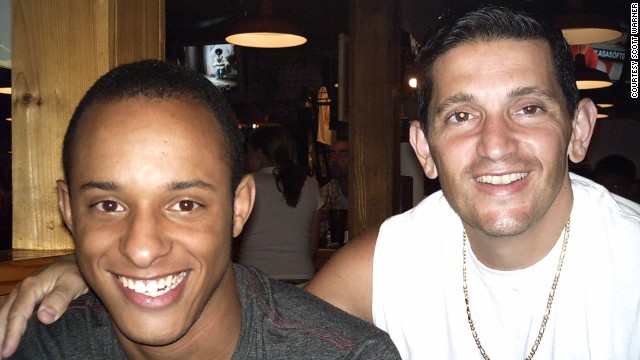Suicide in the military: who else is it affecting?
Repercussions among the families of U.S. soldiers
(Army Pvt. Heath Warner with his father, Scott Warner, before Heath deployed to Iraq. At 19, Heath was killed in 2006. His father, unable to cope, attempted suicide in 2010, via CNN)
Heath Warner was a 19-year-old Army private killed by a bomb in al Anbar Province in Nov. 2006. Heath’s father, Scott Warner, confessed in an interview with CNN that all he could imagine while washing down a handful of pills with a gulp of vodka was his late son boarding a plane to Iraq for the last time.
“From the moment those men in uniform were at our door, each day, the pain kept getting worse,” said Warner. “I was crawling up a wall. People out in the real world would tell me, ‘Why aren’t you over this? He’s been gone for years. Why aren’t you better by now?’” Warner’s suicide attempt was just four years after his son’s death.
“All I wanted to do was end my life. I know I’m not alone. I’ve talked to other parents, other family members. We are hurting and someone must do something,” said Warner.
The U.S. military has a well-known record of tracking suicide rates among soldiers; however, the family members of soldiers- spouses, siblings, children, and parents- go uncounted. After much outcry from many organizations such as the National Military Family Association, the Pentagon’s Defense Suicide Prevention Office sent a report to Congress on Feb. 5 proposing a way to track these deaths.
Warner has become an advocate for suicide prevention within the families of U.S. soldiers since his suicide attempt in 2012. When he heard about the Defense Department’s report, he was hopeful.
“If they do this, it would validate that families are traumatized,” said Warner. “This is a lonely journey that parents, siblings, spouses are walking. I know; I’ve talked to them. I don’t care how long it takes, we all want this.”
If approved, it will take at least 18 months for the Pentagon to come up with an accurate statistical report on the suicide rate among the families of U.S. soldiers; however, many believe the $681,600 cost and time of the report will be well worth it.
“I believe that these reports will shine a light on a very serious issue within our country that many overlook,” said senior Sammy Wahl, who plans on enrolling in an ROTC program in college. “When our country sees how this affects so many American families is when we will be able to work towards a suicide-free country.”


